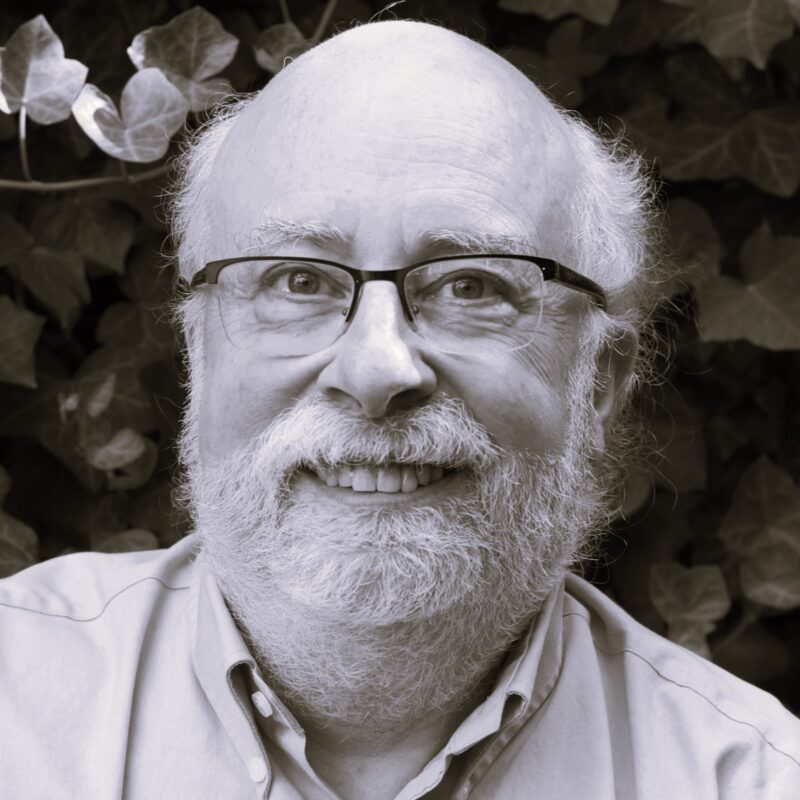In the aftermath of Hamas’s brutal October 7 massacre, a number of chapters of Students for Justice in Palestine (SJP) and other student groups issued statements praising as “resistance” Hamas’s killing of babies, raping of women, and seizing of hostages — all of which violate the laws of war, not to mention basic human norms.
We share the outrage. But we are deeply concerned by efforts to suppress rather than respond to this expression. As First Amendment law recognizes, there is a fundamental difference between the government punishing speech that intimidates targeted students — as it must — and speech articulating abhorrent ideas — which it may not. Students have the right to express support for Hamas, just as they had the right to express support for the North Vietnamese in the 1960s or the Communist Party in the 1950s.
Almost everything we hear being said about Hamas is protected from government action. Further, although private higher educational institutions are not bound by the First Amendment, almost all have committed themselves to abide by First Amendment standards, and these commitments can be enforced as a matter of contract law.
So demands from politicians and Jewish groups that SJP be thrown off campus or investigated for potential “material support” for terrorism (which is illegal) based only on things they are saying are not only legally dubious; they will surely backfire. For a university to fulfill its mission of promoting critical thinking, students must be able to express ideas, no matter how repugnant society might consider them.
In the long run, the kinds of demands being made are bad for Jews, too. Throughout our careers, we have fought antisemitism and other discriminatory ideologies. We believe that the strong protections U.S. law affords to much hateful expression are especially important for members of any minority group, very much including Jews and Zionists on campus.
We concur with the fundamental tenets laid out in 1927 by the first Jewish Supreme Court justice, Louis Brandeis: that, far from suppressing hatred, “repression [of speech] breeds hate,” that “the fitting remedy for evil counsels is good ones,” and that “only an emergency can justify repression” of speech. Consistent with Brandeis’s “emergency principle,” the government may punish hateful speech that, in context, directly causes or threatens specific, serious, and imminent harm. Such constitutionally unprotected speech includes intentional incitement of imminent violence, and targeted threats and harassment. Enforcing these limits on speech is itself speech-protective: After all, when Jewish students and faculty members are intimidated by threatening or harassing speech, they are deterred from exercising their own First Amendment freedoms of speech and association.
But the government may not restrict speech solely because its message is hateful or hated, or because it might indirectly lead to some future harm. Under that looser, “bad tendency” test, which prevailed until the 1960s, the government had too much discretion to punish minority voices and views — including those advocating human rights. As Brandeis recognized, both liberty and safety are promoted when government restricts speech that meets the emergency standard, but both are undermined when government restricts speech that does not.
Of course, the recent torrent of hateful antisemitic and anti-Zionist expression does include a few cases that do meet the emergency test. On October 31, Cornell University junior Patrick Dai was arrested on federal criminal charges for posting online threats that directly targeted Jewish students. Among other antisemitic, threatening language, Dai said, “gonna shoot up 104 West,” a Cornell dining hall that caters predominantly to kosher students. In another post, he threatened to “stab” and “slit the throat” of any Jewish males he sees on campus, to rape and throw off a cliff any Jewish females, and to behead any Jewish babies. He also threatened to “bring an assault rifle to campus and shoot all you pig Jews.” When antisemitic speech targets specific individuals or groups of individuals and intentionally instills in them a reasonable fear that they will be subject to violence, it constitutes a punishable “true threat.” Another example of illegal threats on campus may be seen in this recently-circulated video, which appears to show a Jewish student at Harvard surrounded by anti-Israeli protesters and cornered while trying to move on; they are restricting his right of movement and making physical contact with him.
The online post by a UC Davis professor that used threatening language against “zionist journalists who spread propaganda & misinformation” and their families is trickier. Deplorable as this expression is, it does not target a sufficiently specific set of individuals to be punishable, in our view — unless one or more individual journalists can point to additional contextual facts that led the post to instill reasonable fears in them. This might be the case, for instance, if the professor had previously described a specific individual as “a zionist journalist,” or as someone who “spread[s] propaganda & misinformation.”
As Brandeis recognized, both liberty and safety are promoted when government restricts speech that meets the emergency standard, but both are undermined when government restricts speech that does not.
Short of this, however, censorship is bad for everyone. This is why we oppose efforts to punish constitutionally protected expression by SJP. Florida’s Governor Ron DeSantis ordered state universities to ban SJP. The Anti-Defamation League (ADL) and the Brandeis Center urged university presidents to investigate their campus SJP chapters for potential violations of laws barring material support for foreign terrorist organizations.
These actions were prompted by SJP’s parroting of pro-Hamas propaganda: The ADL and the Brandeis Center stressed that the national SJP provided its chapters with a toolkit instructing, “We must act as part of this movement,” and followed with campus events where students “proudly declared ‘We are Hamas,’ and ‘We echo Hamas.’” This kind of hateful, incendiary rhetoric scares and enrages many on campus, particularly Jews and Zionists. They feel unsafe, unequal, and unincluded. To borrow a trope from progressive campus activists describing far tamer expression, such pro-Hamas rhetoric “denies the humanity” of Israelis and Jews. But these expressions hardly amount to “material support” for Hamas.
In rulings that prohibited the government from punishing a Ku Klux Klan leader’s call for violence against blacks and Jews, or from punishing civil rights and anti-war activists who used violent, incendiary rhetoric, even when their speech was followed by some violent action, the Supreme Court explained that we must tolerate such language because “strong and effective extemporaneous rhetoric cannot be nicely channeled in purely dulcet phrases. An advocate must be free to stimulate his audience with . . . emotional appeals.” The Court has recognized that even explicitly threatening, violent language may well constitute “political hyperbole,” because “the language used in the political arena . . . is often vituperative, abusive and inexact.”
It’s enormously important, therefore, to recognize the line between permitted “expression” in support of foreign terrorist organizations and forbidden “material support” for them.
In its 2010 Holder v. Humanitarian Law Project decision, the Supreme Court repeatedly stressed the narrowness of the federal statute’s concept of expression that constitutes “material support,” which requires “working in coordination with or at the command of” the foreign terrorist organization. Even more on point is the Court’s 1972 Healy v. James decision, which ruled against a university’s refusal to recognize a campus chapter of Students for a Democratic Society, based on a generalized fear that the chapter might engage in “disruptive” activities. Following these precedents, no campus may take any punitive action against its SJP chapter based on that chapter’s expressive conduct alone. If, however, the chapter were to go beyond advocacy for Hamas to fundraising for it, that would violate “material support” laws without raising any First Amendment issue. But we are unaware of any evidence that SJP has done so. And if there were such evidence, it would be a matter for law enforcement, not an investigation by campus administrators or unsubstantiated presumptions of illegality by state officials.
Then there is the difficult area where speech and action may be intermingled. On October 31, Virginia’s attorney general announced that his office had launched an investigation into American Muslims for Palestine, a nonprofit organization that funds SJP, for potentially violating Virginia’s charitable-solicitation laws. In a long series of cases, the Supreme Court has recognized that regulations on charitable solicitation burden First Amendment rights of expression and association; hence, the government must demonstrate that any such regulation serves important purposes — such as preventing fraud — without unduly restricting the organizations’ expressive conduct. It is especially important that these regulations not selectively target particular nonprofits because of their ideologies. It may be tempting to overlook such concerns in the case of antisemitism and terrorism. But we should not forget that Southern states deployed these very tactics against the NAACP in the mid-20th century, in response to its anti–Jim Crow advocacy.
The lesson of speech-suppressive measures throughout history and around the world is that they are likely to be ineffective at best, counterproductive at worst. Already, the initiatives against SJP’s pro-Hamas advocacy have drawn increased attention to that activism, illustrating the familiar “forbidden fruits” phenomenon. Additionally, SJP and other Hamas apologists have been able to claim that efforts to silence their ideas reflect the inability to rebut those ideas on their merits. Why should SJP be given the gift of free-speech martyrdom?
More effective strategies include offering classes and programs about the following topics: how to discuss difficult issues without vilifying classmates; the importance of free speech and academic freedom; the causes of various hatreds and approaches for countering them; and the history surrounding the Israeli–Palestinian conflict. University leaders should also strongly protect students from physical assaults as well as from intimidating, harassing, and other illegal speech and acts, while stressing that students should be expected to hear ideas that they disagree with — ideas, even, that cut them to their core. Moreover, universities should encourage all students to avoid communicating in ways that are insulting, offensive, disrespectful, or frightening — to be mindful that while they may not be able to control what happens in Israel and the Palestinian territories, they can control how they treat their classmates. Leaders and faculty should stress that this is an opportunity for empathy and intellectual curiosity. Why does the friendly student who sits next to you in an art or physics class hold a view of the conflict that you consider evil? If you’re a partisan, doesn’t it help your advocacy to imagine yourself in that classmate’s shoes, to ponder how and why your adversary sees things differently, so that you may counter her arguments more effectively? A core value of the academy is, or should be, the quest for individual agency and rejection of groupthink; everyone learns more from people with whom they disagree. That’s a message that’s not stressed enough, and now would be a good time to underscore it.
To be sure, the “good counsels” that Brandeis advocated in response to speech that falls short of his emergency standard is not guaranteed to reduce hatred of Jews or support for ruthless terrorists. But, as both history and reasoning have shown, the alternative censorial strategy is doomed to fail.
This article was published on November 9, 2023.


